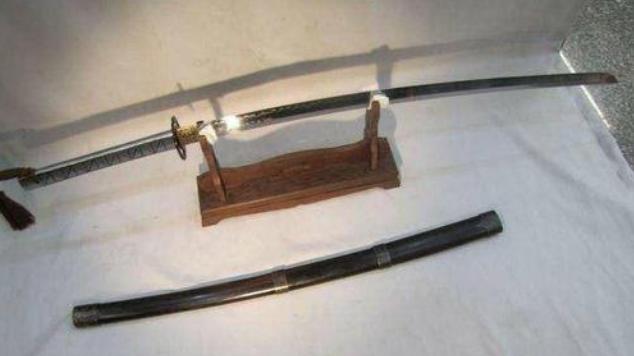Qin Shi Mingyue Han Shi Guan, the Long March of Ten Thousand Miles has not been returned. But to make the Dragon City fly will be, not to teach Humadu Yin Mountain. - "Out of the Jam"
As we all know, during the War of Resistance Against Japan, Our country's armament was weak, there were no aircraft cannons, and the weapons used to fight the war were either rifles with limited range, sabers captured from the enemy, or some earth bombs. Even though the weapons were scarce and backward, the tenacious Chinese people still relied on their willpower to defeat the enemy and defend their homeland. A veteran of the War of Resistance Against Japanese Aggression once captured a Japanese saber on the battlefield, the Japanese side once wanted to buy 30 million yuan, but the old man categorically refused.

Swords appeared very early in the history of our country, the earliest can be traced back to the Bronze Sword of the Shang Dynasty, when the knife generally showed the characteristics of short and wide, mainly used in daily life. In the Qin and Han dynasties, people mastered the technology of smelting steel, so there was a preliminary classification of knives. The one used in combat is called the battle knife, which is tough and easy to use; the one used for wearing in peacetime is called a sabre, which is light and exquisite. With the development of the times, the production process of knives has become more and more refined, more and more suitable for the battlefield, so even in modern warfare, we can still see the figure of knives. During the War of Resistance Against Japan, the Japanese mainly used sabers to attack closely. Due to the infiltration of sword culture, the Japanese attach great importance to the idea of the samurai. Those with higher status will wear a saber because it symbolizes status and status.
This Japanese saber was captured by Hou Yongsheng from the Japanese. At that time, he was fighting on the front line, heroically killing the enemy, because the war was tense, and time was everything. Before he could take a closer look, he randomly seized a saber and withdrew. Later, he carefully looked at the saber and found that it was the sabre of a great samurai, and the word emperor was also written on it, which showed the high status of the owner of this sabre.
After the end of the war, the Japanese side did its best to recover the knife, and after many inquiries, it was learned that the knife had landed in the home of a veteran named Hou Yongsheng. So Ri conveniently sent a lot of people to persuade them, expressing their willingness to buy back the knife at a high price. At that time, the price of 30 million yuan was offered, but Hou Yongsheng was a person who had experienced the battlefield, had seen the cruelty of war, and understood the extraordinary significance of this knife, which was a witness to the War of Resistance Against Japan and an ironclad proof of Japan's aggression against China.
Because this knife also always reminds us not to forget the national shame, only if a country is strong enough, it has the right to speak, and there are more opportunities to move towards beautiful development. Hou Yongsheng felt very angry at the repeated disturbances of the Japanese side and fiercely rejected them. In order to ensure the safety of this knife, Hou Yongsheng decided to hand it over to the state for safekeeping, because it is always unsafe to put it in the home of an ordinary person. As a result, the Japanese saber was handed over to the local museum, giving it a more important mission.
epilogue
Today, the saber is placed in the museum and attracts a large number of tourists to stop and watch every day. The public will also learn the story of a soldier who fought bravely behind this saber, and can always remember China's modern history of humiliation and the cruelty of war. It was only because of the revolutionary martyrs that china was able to get through those difficult years, and China was able to stand up. Today's life is stable and happy, but we should also always be vigilant and strive to develop ourselves. Today's China is very strong, but it is not strong enough, and if we want not to be looked down upon, we still have a lot to do, and forge ahead, which is what every Chinese should do.